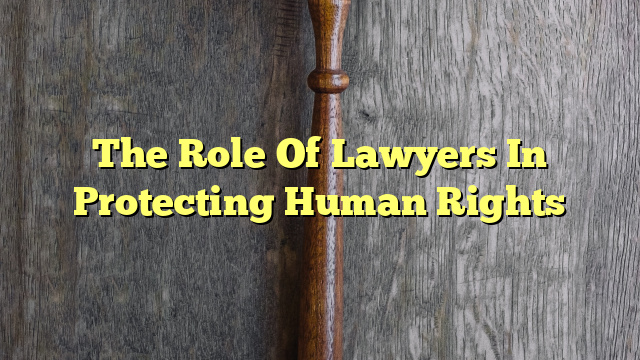Table of Contents
- What is Human Rights Advocacy?
- Responsibilities of Lawyers
- Essential Roles of Lawyers in Society
- The Right to a Lawyer
The concept of human rights is often associated with the protection of fundamental freedoms and rights such as the right to a fair trial, freedom of expression, and freedom from torture. Advocating for these rights is the responsibility of all citizens, but lawyers, in particular, play an important role in protecting human rights around the world. This article will explore the role of lawyers in protecting human rights and the responsibilities of lawyers as human rights advocates.
What is Human Rights Advocacy?
Human rights advocacy is the practice of defending and promoting human rights. Human rights advocates are people who use their skills and knowledge to protect vulnerable people and groups who are not able to otherwise defend their rights. It is a form of activism that works to protect the human rights of individuals, groups, and communities.
In some cases, human rights advocacy is focused on the protection of individuals or groups within a particular society. For example, human rights advocates may work to ensure that the rights of a minority group such as the LGBTQ community are protected in a particular country or region. In other cases, human rights advocacy is focused on the protection of people from exploitation or abuse by their own governments or international forces.
Human rights advocacy can take the form of legal action, public campaigns and demonstrations, or diplomatic pressure from other countries or international organizations. The goal of human rights advocacy is to ensure that everyone’s rights are respected and protected.
Responsibilities of Lawyers
Lawyers are uniquely positioned to advocate for human rights. They have the skills and knowledge to challenge the legal systems that are used to oppress people. Lawyers are also well versed in the laws and conventions that protect human rights. As such, they are able to use their expertise to challenge laws and policies that violate human rights.
The responsibilities of lawyers in protecting human rights can be divided into four main categories:
- Challenging laws and policies that violate human rights.
- Providing legal representation to victims of human rights abuses.
- Researching and documenting human rights abuses.
- Mobilizing public opinion against human rights abuses.
Lawyers play an important role in challenging laws and policies that violate human rights. They can challenge laws that discriminate against certain groups, such as women or minorities, or laws that limit freedom of speech or freedom of assembly. They can also challenge policies that allow police brutality or arbitrary detention. Through these legal challenges, lawyers can help ensure that human rights are respected and protected.
Lawyers also provide legal representation to victims of human rights abuses. They can represent victims in court proceedings or in negotiations with governments or international organizations. Through this legal representation, lawyers help ensure that victims of human rights abuses are able to seek justice and have their rights respected.
Lawyers also conduct research and document human rights abuses. They can conduct investigations into rights violations and collect evidence to be used in legal proceedings. This evidence can help hold those responsible for human rights abuses accountable and help ensure that victims of rights abuses receive justice.
Finally, lawyers can mobilize public opinion against human rights abuses. They can speak out against human rights abuses, organize campaigns and demonstrations, and collaborate with other human rights organizations. Through their advocacy, lawyers can help bring attention to human rights violations and put pressure on governments and international organizations to end these abuses.
Essential Roles of Lawyers in Society
The roles of lawyers in protecting human rights are essential for a just and equitable society. Lawyers are uniquely

